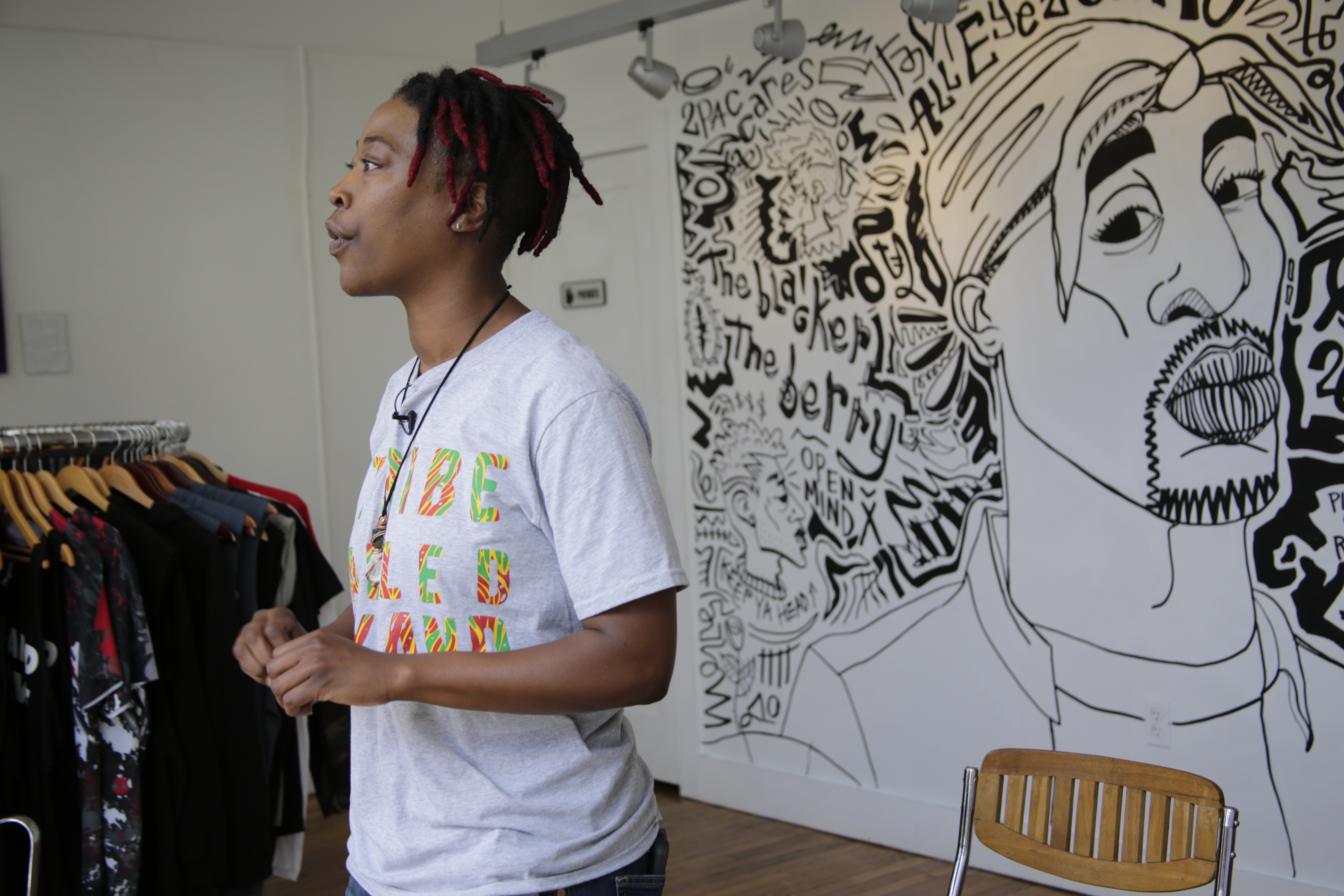The Downtown Oakland Specific Plan Team had the pleasure of facilitating a series of interviews with Oaklanders about their visions for an equitable downtown Oakland.
Thank you to Chaney Turner of Town Biz for sharing their time and brilliance with us! Watch the video or read the transcript below to hear Chaney's thoughts.
What does Oakland mean to you?
Oakland means to me…it means home first of all. It means culture. It means love. It means resistance. All of the above.
What are your thoughts on what is going on in Downtown Oakland right now?
As someone who is a lifelong lifetime resident, I’ve seen downtown change from when it was desolate and we just had a few stores, now thriving and vibrant entertainment and shopping areas. There’s some positive things. You have a lot of local small businesses, such as Town Biz, and also some restaurants as well. And you have a lot of big businesses coming in. We all know Uber is on the way and other companies that occupy space down here in Downtown Oakland. I feel that… we need to have an equal playing field and equal access for not only the businesses that are her, but residents that reside downtown. Because what happens in downtown pretty much ripples throughout the rest of the city. And right now, we just have a lot of different changes, with unfortunately… people being pushed out. And once you have people pushed out of their homes, you have a lot of small businesses being pushed out and a lot of mom and pop stores that have been around for decades that you know are in danger of being pushed out due to increasing rents. The small donut shop down here on 17th , Colonial, has been down here for 15 years. They’re being closed down and that entire building is being sold. And we are seeing that kind of pattern happening more frequently, unfortunately, and we just need to keep an eye out and support the smaller mom and pop folks and family stores that have been around.
What is your vision of the future of downtown? And how could downtown better serve you?
My vision for downtown, I spend a lot of time here. I work here, I play here, I do biz downtown, and I really see a lot of the culture leaving downtown. A lot of the culture that people moved here for. A lot of the culture that is leaving has to do with night life. We don’t have a lot of access to venues to do live music, or if you want to do more cultural events like dance in the arts. I see a lot of that leaving downtown. And a lot of that is what created… you know, we used to have Sweet Jimmy’s and you had… well you still have Geoffrey’s and other spaces that, where are more catered to the Black community of Oakland. And unfortunately, I’m just not seeing that. My vision would be for downtown to be a real entertainment and arts district. And that means having the real people of Oakland represent that and having us kind of lead what the makeup of what downtown could look like. And so, myself and there’s plenty of other people involved in fighting to keep Oakland creative. So my vision is seeing a vibrant, creative, and diverse downtown. And affordable downtown [laughter].
When you think of “Equity in Oakland,” what comes to mind?
When I think about equity, I think of support, right. In order for us to build more equity, we have to support those who are already in a place to build. And that means, the city really getting in there and making sure that we can have access for people who are either lifelong residents or people who have been here for a few decades. For example, here, even though we’re a small business, everyone who works here is an Oakland resident. They’re all people of color, we have queer people, the real makeup of Oakland that’s here. And even though we’re small, we’re able to pay people a livable wage. And so we have to get behind and rally and I feel like if the community didn’t really support us, we couldn’t support our employees to you know, help and build equity. And here, we try to work as an incubator. We don’t look at people as our ‘employees,’ and try to work with peoples’ strengths and mold that, so they can either go and start their own business, or they can help use their own talents to strengthen the businesses that are already here.
What changes would you suggest to improve social, racial, and economic equity in downtown Oakland?
In order for us to do that, we have to start by having real conversations. We get together at meetings and have our city officials, but we never want to talk about the big elephant in the room. It’s all of us, the residents, and business owners, but right now Oakland is at a point where we just don’t have people representing us with our interests in mind. And so, you know, in order to do that, we’re going to actually all have to work together to remove those people and get our peers and people who actually want to put up the fight to keep Oakland. There really isn’t any other way. We have folks who will throw crumbs at us and feel that that’s acceptable, but it’s not. Now we actually have to get in there and work on the political side and really grab our peers off the street who really want to work hard and represent Oakland.
